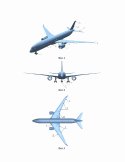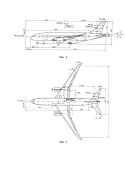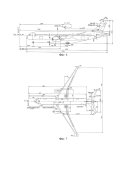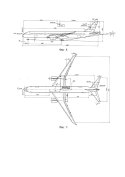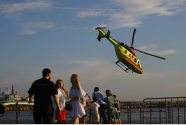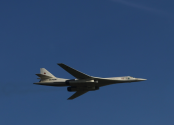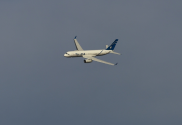Quantum computing for Mega Science installations. Russia has among highest number of its students in STEM and in real stem like Maths, Physics, Chemistry.
80% of international students are still from Central Asia. Kazakh 83000, China 68,000. India 24,000.
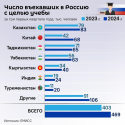
This related to above. almost 80% of Kazakh foreign students are studying in Russian universities.
Putin stressed that Russia has its own powerful quantum computers
Rosatom is also involved in this.
At a meeting with representatives of the nuclear industry, Russian President Vladimir Putin spoke about the development and availability of high-performance quantum computing systems in the country. According to the head of state, these devices have the potential to develop new drugs, vaccines and various materials, as well as to quickly process significant amounts of data.
The President emphasized that Rosatom had successfully completed a project to develop prototypes of quantum systems demonstrating impressive computing characteristics. In addition, Putin noted that the city of Obninsk in the Kaluga Region is building the largest enterprise in Europe for the production of radiopharmaceuticals intended for the diagnosis and treatment of complex diseases, including oncology.
Putin also pointed out the need to use quantum computing systems in MegaScience-class installations, including those being created at the National Center for Physics and Mathematics in Sarov.
"Quantum computers make it possible to develop new medicines, vaccines, materials, and quickly process colossal amounts of data. Thanks to Rosatom's efforts, prototypes of such systems with enormous computing capabilities have already been assembled in Russia," the president emphasized.
Almost ten times more powerful than the ISS: the Russian Academy of Sciences spoke about the advantages of the Russian orbital station
The level of energy supply at the ROS will be up to 50 kW
The level of energy supply for experiments on the Russian Orbital Station (ROS) is almost ten times greater than on the International Space Station (ISS). This was reported by the President of the Russian Academy of Sciences (RAS) Gennady Krasnikov in an interview.
The new station project includes two scientific modules. One is for medical and biological research, and the other is for a wide range of applications. Scientific organizations are preparing proposals for programs of experiments on the ROS, on the basis of which the design and technical content of the modules will be formed.
the same time, the advantage of the future station is not only in specialized modules. It is important that it will provide a different level of energy. Unlike the ISS, where 5-7 kW are allocated for experiments, up to 50 kW will be allocated for these purposes at the ROS, which will open up broader prospects for scientific research.
Gennady Krasnikov, President of the Russian Academy of Sciences
In Russia, work continues on the prospective Russian Orbital Station. ROS is planned to be launched into a polar orbit with an inclination of about 97 degrees. This will allow observing the entire territory of Russia and the strategically important Northern Sea Route.
80% of international students are still from Central Asia. Kazakh 83000, China 68,000. India 24,000.
The number of students from Central Asia in Russian universities is growing

This related to above. almost 80% of Kazakh foreign students are studying in Russian universities.
Brain Drain from Kazakhstan: What Makes Young People Leave
Today, more than 80 thousand Kazakhstani students are studying at foreign universities.

